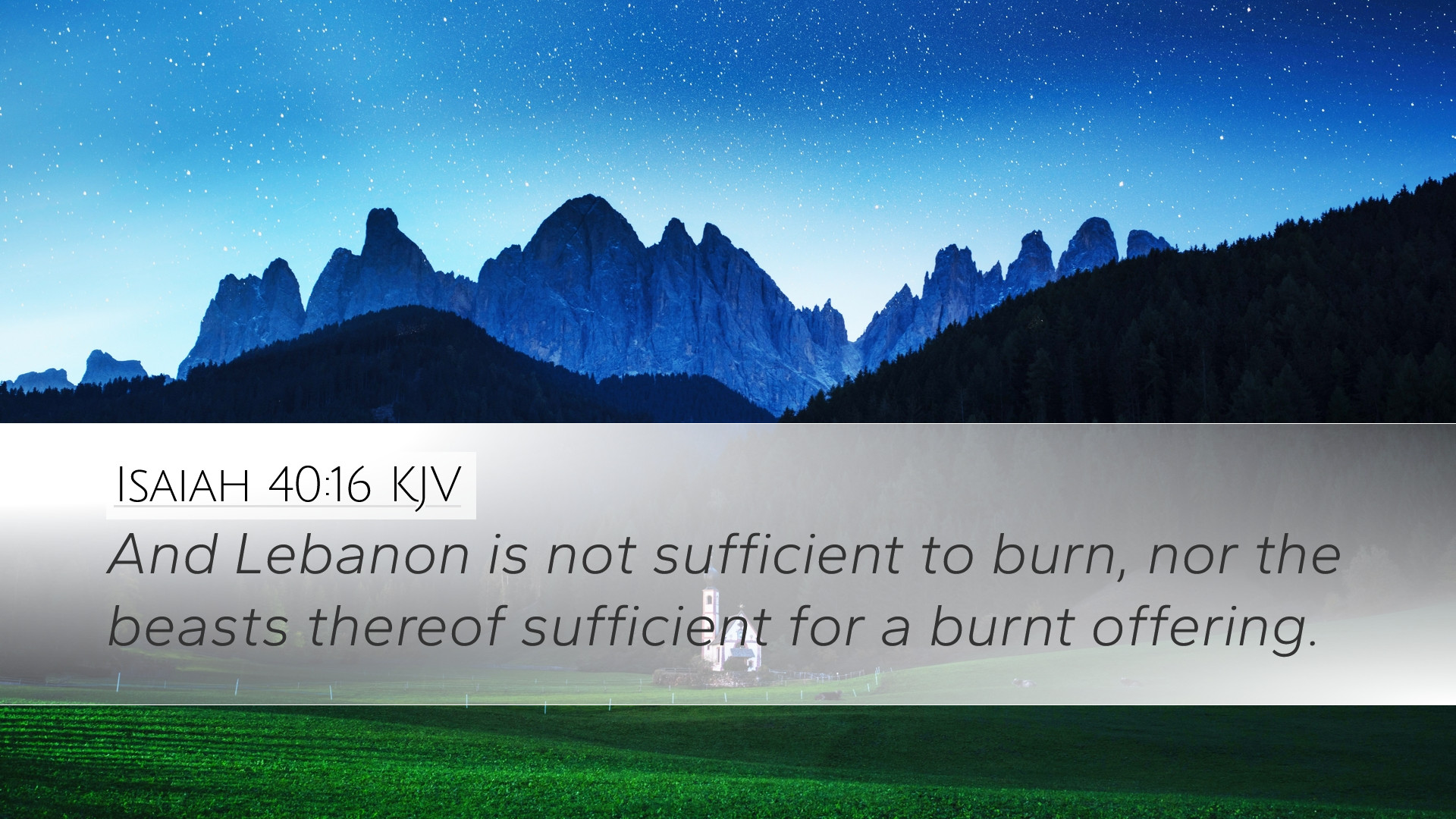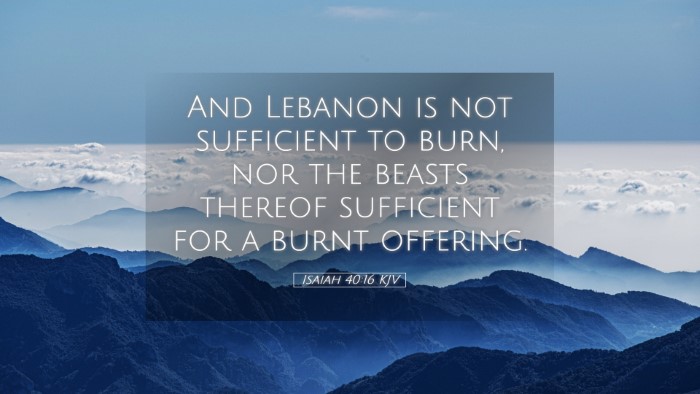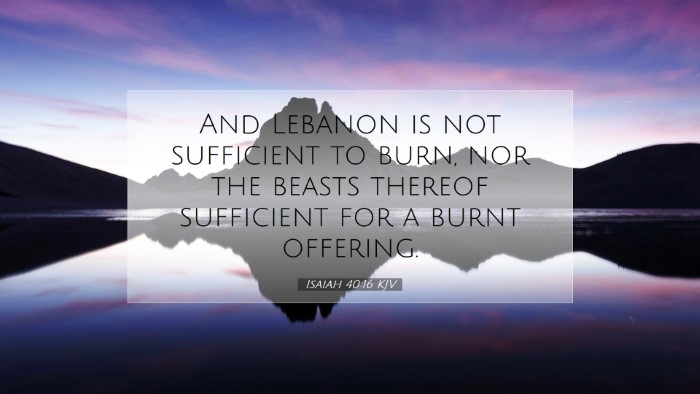Commentary on Isaiah 40:16
Verse (Isaiah 40:16): "And Lebanon is not sufficient to burn, nor the beasts thereof sufficient for a burnt offering."
Introduction
The book of Isaiah is rich with themes of comfort, judgment, and the majesty of God. Chapter 40, in particular, serves as a pivotal transition from the themes of judgment in preceding chapters to a future of hope and restoration. The verse under consideration, Isaiah 40:16, emphasizes the inadequacy of earthly offerings in comparison to the greatness of God, serving as a profound reminder of divine supremacy and the futility of attempting to appease God through material means.
Contextual Analysis
The context of Isaiah 40 addresses the exiled Israelites, conveying a message of consolation and assurance. Earlier in the chapter, the prophet declares God's comfort (verse 1) and readiness to redeem His people from both sin and despair. The mention of Lebanon and its resources signifies the best of human offerings and endeavors. Thus, understanding this verse involves recognizing the contrast between the grandeur of nature and the ineffable greatness of the Creator.
Commentary Insights
Matthew Henry's Commentary
Matthew Henry reflects on the insignificance of Lebanon, noted for its majestic cedars, as insufficient to fulfill the demands of God. He states that even the mightiest resources of nature are inadequate when it comes to the holiness of God. Henry points out that “the offerings of the beasts of Lebanon, even at their fullest supply, cannot approach the holiness and worth of God.” This implies a fundamental theological principle that human efforts, regardless of how grand they appear, cannot suffice to cover sin or bring acceptance before God. Henry urges readers to recognize their dependence on divine mercy rather than their own offerings.
Albert Barnes' Notes on the Bible
Albert Barnes elaborates on the imagery of Lebanon, which was known for its towering trees and rich resources. He interprets the phrase to mean that even if one were to use Lebanon’s entire supply of trees for fuel, it would not be enough to properly honor God. Barnes states, “The figure employed here is that of a vast multitude of offerings, which are utterly insufficient for the purpose.” This reflects a key idea that God does not require the material things we often consider valuable; rather, He seeks a contrite spirit and a heart turned toward Him. Barnes emphasizes that true worship is intrinsic and spiritual, highlighting God’s desire for genuine relationship over mere ritual.
Adam Clarke's Commentary
Adam Clarke offers his insights by focusing on the limitations of material offerings. He remarks that Lebanon's trees, although valuable, cannot meet the demands of divine holiness. Clarke writes, “All the firewood in Lebanon would be utterly insufficient to make a proper flame before God.” He suggests that the verse illustrates the insufficiency of external rites and externalism in worship. Clarke points out that God requires not just offerings but a life surrendered to Him. He encourages a reflective approach, urging believers to consider how often they replace genuine relationship with God with mere acts of service or external display.
Theological Implications
- Divine Supremacy: The verse underscores God’s greatness and the limitations of human offerings. It encourages believers to recognize their place before God and the provision He has made through Christ.
- The Futility of Ritualism: Isaiah 40:16 cautions against the dangerous mindset of equating external actions with true worship. All human efforts pale compared to God’s holiness.
- Call to Authenticity: This verse serves as a reminder for believers to seek authenticity in their relationship with God, emphasizing a heartfelt connection over ritualistic practices.
Practical Application
For pastors, students, theologians, and Bible scholars, this verse offers rich ground for contemplation. In a world filled with distractions and the temptation of reliance on material successes, Isaiah 40:16 encourages a focus on spiritual growth and authenticity. Ministries and teaching can take this verse as a foundation to explore themes of proper worship devoid of materialism.
Moreover, this encourages congregations to engage in self-reflection about their worship practices. Are they merely engaging in ritual without true heart engagement? The call is to offer not just our resources but our very lives as living sacrifices, recognizing that this is what the Lord desires.
Conclusion
Isaiah 40:16 is a profound statement about God's expectations and the inadequacies of human endeavors in comparison to His divine nature. Drawing from the insights of respected theologians, this commentary encourages a deep, meaningful exploration of worship and offers a challenge to pursue authenticity in our relationships with God. As we reflect on the resources we have, let us remember that it is the heart, more than any offering, that God seeks.


